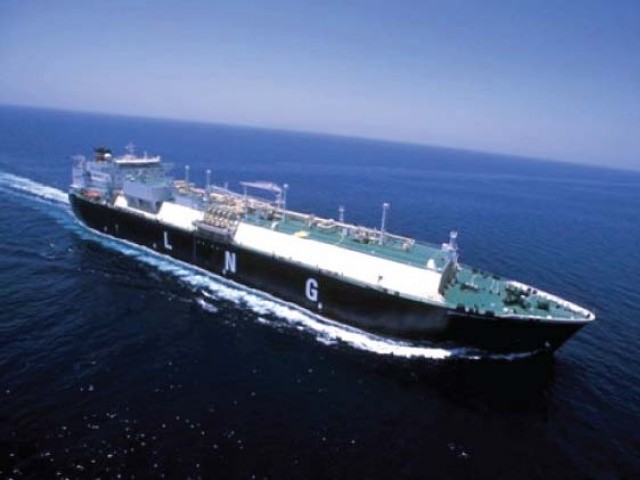
The country can save the cost much before renegotiating LNG agreements with suppliers and domestic import terminal operators.
“Pakistan can immediately save expenses of over $50 million per annum by allocating the idle capacity of 400 million cubic feet per day (mmcfd) to the private sector,” an industry source told The Express Tribune.
Apart from this, he said, the allocation of the idle capacity would generate revenue of over $50 million for the two state-owned gas utilities – Sui Southern Gas Company (SSGC) and Sui Northern Gas Pipelines Limited (SNGPL) – for transporting imported gas from Port Qasim in Karachi to Punjab-based consumers through their pipeline networks.
The previous Pakistan Muslim League-Nawaz (PML-N) government had agreed to pay $272,000 and $245,000 per day in capacity utilisation charges, irrespective of the usage, to Engro Elengy Terminal Pakistan Limited (EETPL) and Pakistan LNG Terminals Limited (PLTL) respectively.
Pakistan currently pays $190 million in capacity charges per annum. It is utilising 100% of the installed capacity of 600 mmcfd of Engro terminal. However, in the case of PLTL terminal, it is utilising only one-third of the capacity of 600 mmcfd, but pays full capacity charges of $245,000 per day, including over $50 million per annum for the idle two-thirds of the capacity.
“The $100-million savings will reduce the LNG import bill by around 5% compared to total LNG imports of $2 billion per annum,” the industry source suggested.
Besides, the government may stave off huge losses of millions of dollars due to gas leakages during transmission from the port to end-users.
“Transmission and distribution losses come to around 9% of the imported gas (value of around $2 billion),” the source said.
Energas LNG Terminal (ELT), which is part of a buyers’ consortium representing the private sector, is one of those who have asked the government to allocate the idle LNG capacity to them.
ELT CEO Anser Ahmed Khan said the government’s response was encouraging as it was studying possible ways in which the idle capacity could be offered to the private sector.
The ELT consortium is also building an LNG import terminal in Pakistan. Its business model is similar to those prevalent in the Far East and Europe, where end-users of gas are the terminal developers.
They have no reliance on the government unlike Pakistan’s two existing terminals which charge $272,000 and $245,000 per day in capacity charges.
“As a private sector buyer, we are confident of importing gas at very competitive rates and supplying it to our shareholders and other clients at comparatively lower tariffs,” emphasised Khan, who has over 18 years of professional experience in the international oil and gas sector.
“The immediate challenge is to make gas affordable and competitive rather than creating additional demand,” he said.
“Encouraging competition in the country will help provide cost-effective gas to power, industrial and transport sectors. We need to create a sustainable environment to reduce reliance on government subsidy and focus on self-sufficiency…Competition allows us to achieve these objectives,” he said.
12b lost as crucial LNG shipment cancelled
Meeting future demand
“LNG demand will double to four billion cubic feet per day (bcfd) by 2025 compared to 2 bcfd at present,” Khan anticipated.
It is critical to build at least one more LNG import terminal by 2021. “If we don’t encourage this development, I fear it will have an adverse effect on the economy, including the possibility of blackouts,” he cautioned.
Khan pointed out that they already had adequate demand for LNG in the private sector.
LNG appears to be more reliable and predictable option
Shareholders of Energas have interest in the production of electricity, cement, textile and vehicles to name a few. The shareholders include Yunus Brothers, Sapphire and Halmore Power.
Khan called LNG an environment-friendly fuel and a cheaper alternative to petroleum products like furnace oil and diesel. LNG also has the ability to compete with pipeline gas as it does in international markets like that of Europe.
Petroleum Minister Ghulam Sarwar Khan had earlier said the government would seek to renegotiate the existing import terminal charges in both cases; whether using the infrastructure or not.
Besides, the government would also seek to renegotiate the long-term LNG import tariff with Qatargas, which at present stands at 13.37% of Brent crude price.
EETPL, however, has challenged the government’s decision of renegotiating the return on investment agreed with it, saying no provision allows the state to renegotiate the investment agreement.
The writer is a staff correspondent
Published in The Express Tribune, December 10th, 2018.
Like Business on Facebook, follow @TribuneBiz on Twitter to stay informed and join in the conversation.













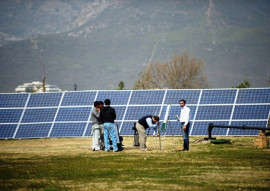
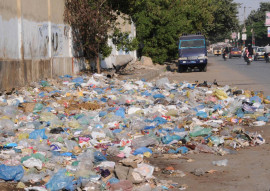
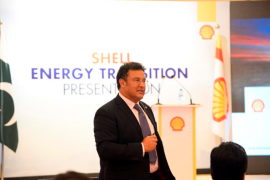


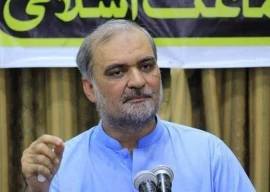

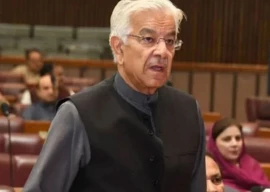











1714024018-0/ModiLara-(1)1714024018-0-270x192.webp)










COMMENTS
Comments are moderated and generally will be posted if they are on-topic and not abusive.
For more information, please see our Comments FAQ